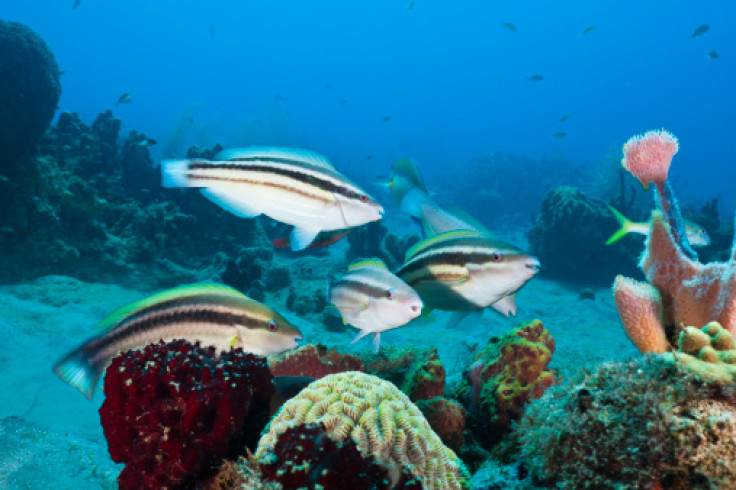Caribbean Coral Reefs 'to Disappear Due to Loss of Parrotfish and Sea Urchins'

Most Caribbean coral reefs are at risk of disappearing in the next 20 years due to the loss of parrotfish and sea urchins, a study has warned.
The paper, published in the International Union for Conservation of Nature (IUCN), analysed more than 35,000 surveys conducted at 90 Caribbean locations since 1970.
Results showed that Caribbean corals have declined by more than 50%.
The decline has been defined as "truly alarming" by director of IUCN's Global Marine and Polar Programme Carl Gustaf Lundin, who took part in the study.
According to the authors, climate change – originally thought to be the primary cause of the coral reef decline – has only partly contributed to the coral degradation.
The loss of parrotfish and sea urchins that eat algae has been the key factor of coral decline in the region.
Lundin said: "We saw that reefs with no grazers ended up getting smothered by algae. And after a period of time, they see a significant or even complete collapse of the reef area."
A large number of sea urchins disappeared due to a disease thought to have been brought in from the Panama Canal in the 1980s. Parrotfish were widely affected by the extensive fishing on the reefs.
Jeremy Jackson, lead author of the report, stressed the importance of addressing the grazing problem "to stand any chance of surviving future climate shifts.
"Even if we could somehow make climate change disappear tomorrow, these reefs would continue their decline."
According to the study, the least degraded coral reefs are characterised by a vigorous population of parrotfish, such as in the lower Garden Banks National Marine Sanctuary in the northern Gulf of Mexico, and in Bermuda and Bonaire.
In these areas fishing that harms parrotfish is banned or severely restricted.
Areas, such as Jamaica, the entire Florida Reef Tract from Miami to Key West, and the US Virgin Islands – where parrotfish are not protected – have suffered tragic reef declines.
The authors explained that restoring parrotfish populations and improving protection from overfishing and excessive coastal pollution could help the reefs recover.
They also suggested that parrotfish should be listed in the Annex II and III of the SPAW Protocol (The Protocol Concerning Specially Protected Areas and Wildlife).
"The fate of Caribbean corals is not beyond our control and there are some very concrete steps that we can take to help them recover," Lundin said.
© Copyright IBTimes 2024. All rights reserved.






